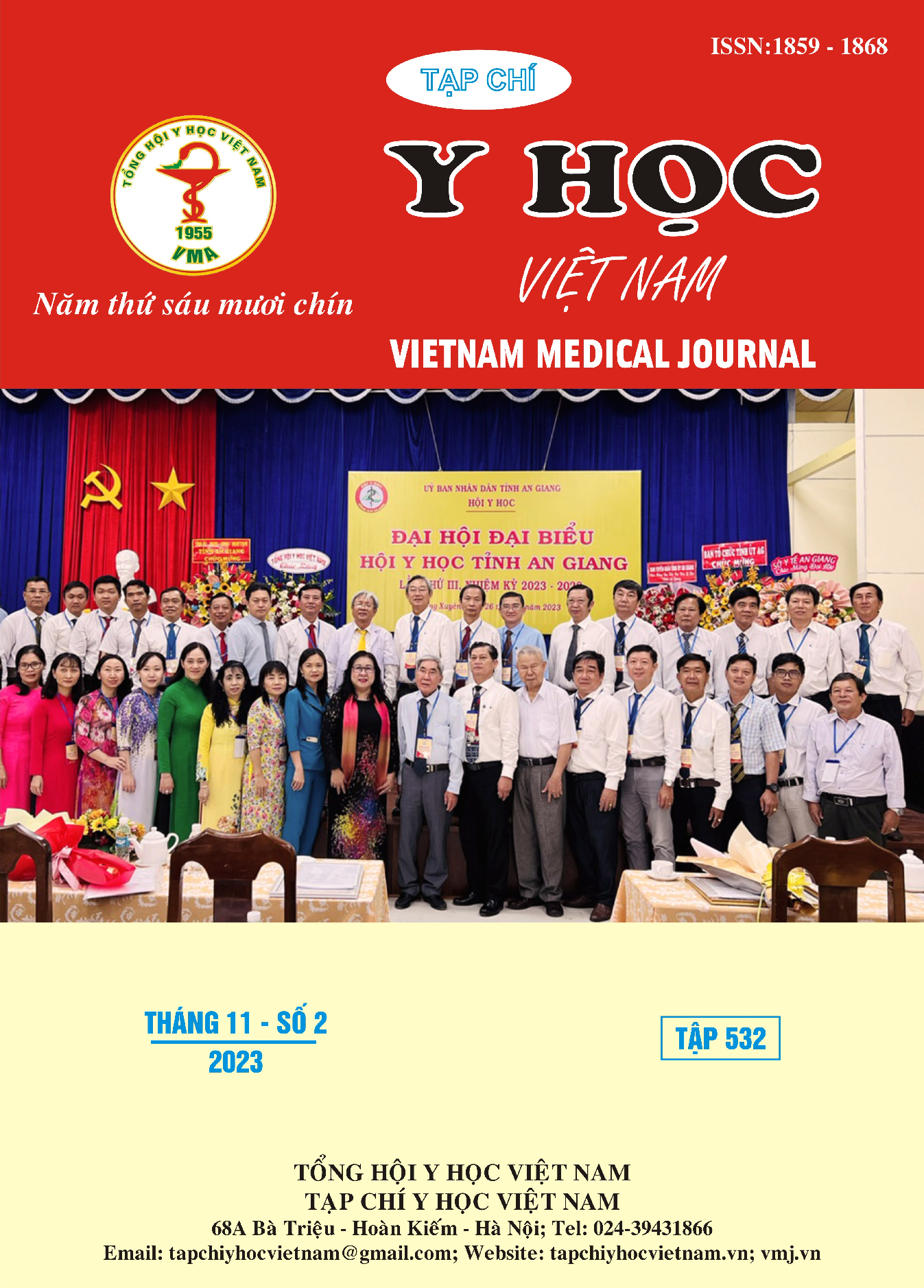DEVELOPING A CONSULTATION PROCESS OF SPOT-MAS CANCER SCREENING TEST FOR GENERAL PRACTITIONERS
Main Article Content
Abstract
Background: research in the field of liquid biopsy is increasingly being promoted to screen and detect cancer early to help improve the survival rate of the disease. The SPOT-MAS liquid biopsy test applying extracellular DNA analysis technology has been put into clinical application research for the purpose of early detection at the same time for the five most common types of cancer in Vietnam. The process of research recognizes some limitations in approaching, counseling, and volunteer orientation in monitoring procedures. Effective implementation of the test in clinical practice requires the development of a detailed consultation process to support general practitioners. Objective: we develop a laboratory consultation process for general practitioners to increase the access of medical staff to new applications of liquid biopsies and DNA analysis technology in the field of health care. control, early detection of cancer. Methods: the
consultation process is built in the form of a diagram combining detailed explanations of specialized terms, including sections (i) interpretation of terms and a brief summary of the analytical mechanism of the test,
(ii) pre-test counseling, (iii) post-test counseling for each result group, and (iv) monitoring chart and orientation for handling diagnostic test results. Conclusion: the consultation process is built to help systematize important information, making it easier for the general practitioner in the process of accessing, interpreting, and handling each group of results.
Article Details
Keywords
: liquid biopsy, ctDNA, consultation procedure, SPOT-MAS
References
2. Cristiano, Stephen, et al. "Genome-wide cell- free DNA fragmentation in patients with cancer." Nature 570.7761 (2019): 385-389.
3. Liu, Minetta C. "Transforming the landscape of early cancer detection using blood tests—Commentary on current methodologies and future prospects." British journal of cancer 124.9 (2021): 1475-1477.
4. Nguyen, Thi Hue Hanh, et al. "Clinical validation of a ctDNA-based assay for multi-cancer detection: An interim report from a Vietnamese Longitudinal Prospective Cohort Study of 2795 participants." Cancer Investigation 41.3 (2023): 232-248.
5. National Cancer Institute.
https://www.cancer.gov/
6. Shtumpf, Mariya, et al. "NucPosDB: a database of nucleosome positioning in vivo and nucleosomics of cell-free DNA." Chromosoma 131.1-2 (2022): 19-28.
7. Bettegowda, Chetan, et al. "Detection of circulating tumor DNA in early-and late-stage human malignancies." Science translational medicine 6.224 (2014): 224ra24-224ra24.
8. Hao, Xiaoke, et al. "DNA methylation markers for diagnosis and prognosis of common cancers." Proceedings of the National Academy of Sciences 114.28 (2017): 7414-7419.
9. Tran, Le Son, et al. "Multimodal analysis of methylomics and fragmentomics in plasma cell- free DNA for multi-cancer early detection and localization." eLife (2023): 62-62.


